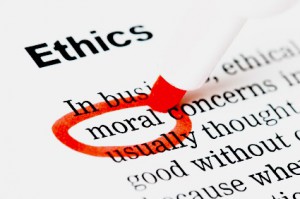 The concept of moralising is at the moment insufficiently developed. As the domestic researcher Soina O. notices. With, the ethical theory there is not enough analytics of this phenomenon. From available encyclopaedic material and journalism it is easy to mark out, at least, two points of view for this phenomenon: as on rhetorical reception and as on expression of a repressive form of morals. In the first case, judgment of moralising has to be based with an intended mistake, for example, as a sophism.
The concept of moralising is at the moment insufficiently developed. As the domestic researcher Soina O. notices. With, the ethical theory there is not enough analytics of this phenomenon. From available encyclopaedic material and journalism it is easy to mark out, at least, two points of view for this phenomenon: as on rhetorical reception and as on expression of a repressive form of morals. In the first case, judgment of moralising has to be based with an intended mistake, for example, as a sophism.
A possibility of influence on the addressee by a certain speculation — levelling at the subject of ability to the free and reasonable choice. But moralising can be also internal belief of the personality, and not just an argument in a dispute. Both the first, and the second the statement essence, and will concentrate in definition of this phenomenon on roles of arguments a mistake.
Soina O. S. defines moralising as judgment of any phenomenon with hypertrophied assessment to absolute value: or it is good or bad. Data to “a flat reality of either kind, or evil states” can exist in ethical doctrines as a position of the personality and in the sphere of “mental experiences of the people”. She writes about moralising as about moral violence — dictatorship of assessment over life of the person who suppresses autonomous will of the personality.
And in this movement to the benefit, the ultimate goal is absolutes so that the benefit is exaggerated to something concrete that can be “felt”, inspected on existence or absence. For example, to measure modesty of the girl by skirt length. Whether the view of moralism as on ethics disease, failure in assessment mechanism, manipulation is sufficient?
For example, a statement “it is bad to kill” — not moralising, but dictatorship of assessment over behavior. And we agree that kill is bad, however, there is a class of cases for which this formula paradoxically loses evidence. So, the hypertrophy of assessment is not difference of moralising from other forms of moral statements. Other domestic researcher of moralising, Brodsky A. I. in the article “Moralising and Violence from the Logical-semantic Point of View”, considers moralising in the field of a sign relation problem to the designated object and to a subject which this sign perceives or articulates.
For it in the forefront there is a repressiveness of morals which is embodied by moralising. Literally, the evil consists in semantics of moral judgments. The moralist confers responsibility for a ghost real to due on others. However, speaking about communication of violence and moralising, the last merges with morals and again its specificity is dissolved, in this case, in a problem of justification of the all-importance of moral requirements.
Besides, requirement from other unconditional compliance the moral ideal itself has nobody speaking can impose also on itself. Whether the concept of moralising if to approach it, first of all, how to expectation of reaction from another is limited? The special problem is that the statement can be or not to be moralising depending on a context.
In what specifics of moralising? Such judgments always have the uncompromising condemning character. It is required to condemn confidence in own right and infallibility.
And what is not considered by consideration of semantics of moral statements, is a context on which depends whether truly we define some judgment as moralising. Besides, undoubted sign of moralising is the reduction of a concrete case to a certain sample evil, besides, in most cases, the moralizer has a high degree of conformality. It will be shown in the appeal to there is nobody the authority.
Created by Babik Anastasia.
